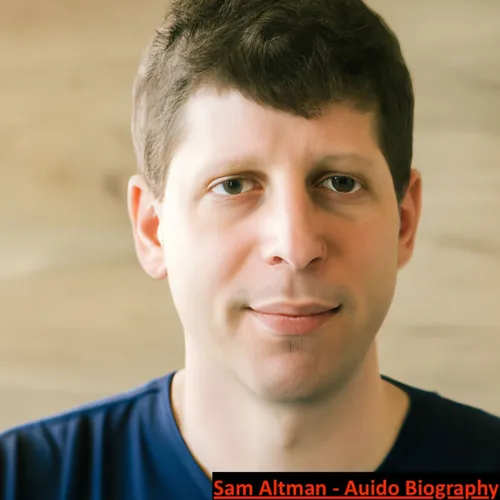Sam Altman: Shaping OpenAI's Global Dominance and Navigating AI's Perils
- Author
- Quiet.Please
- Published
- Sat 30 Aug 2025
- Episode Link
- https://www.spreaker.com/episode/sam-altman-shaping-openai-s-global-dominance-and-navigating-ai-s-perils--67560950
Sam Altman BioSnap a weekly updated Biography.
Sam Altman, OpenAI’s CEO, has dominated AI headlines in recent days with moves that may permanently shape both his reputation and global technology. After steering OpenAI through a turbulent summer, Altman confirmed plans to open the company’s first New Delhi office, underscoring India’s fast rise as OpenAI’s second-biggest market for ChatGPT. He’s scheduled to visit India in September, aiming to forge deep alliances with local startups, government agencies, and academic leaders, making India a pivot point for the next era of AI collaboration, talent hiring, and infrastructure scaling. This expansion isn’t just business—it signals the blending of India’s digital ambition with OpenAI’s global strategy, positioning Altman as a cross-continental power broker.
August saw the blockbuster launch of GPT-5, which Altman hyped as more like conversing with a “PhD-level expert” than a chatbot. Yet, just days after unveiling the model, he admitted OpenAI had “totally screwed up” the launch strategy, acknowledging major missteps in how the rollout was handled. That rare candor hit both tech and business media, reinforcing his image as transparent but also raising questions about execution at the world’s most influential AI company.
Altman’s pronouncements have also rattled financial circles. In media interviews, he likened today’s AI market fervor to the dot-com bubble, warning investors about speculative hype even as OpenAI pursues a jaw-dropping $500 billion valuation for its next share sale. “Someone will lose a phenomenal amount of money,” he warned, all while OpenAI plans to spend trillions on data centers in support of “trillions” in future industry value. His caution has analysts divided: some see robust fundamentals, others predict disaster—a debate Altman seems to relish.
Amid these business maneuvers, Altman’s geopolitical profile is soaring. He appeared in the White House with President Trump to announce a $500 billion AI data center project—cementing a once unlikely alliance and marking a public shift from Altman’s former opposition to the President. Meanwhile, he’s actively warning Washington not to underestimate China’s AI advances, injecting fresh urgency into policy debates over international competition and export controls.
On the talent front, Altman continues to battle rivals like Meta and Google in a cutthroat war for AI geniuses. He revealed to CNBC the intensity of offers now surpassing $100 million, sometimes approaching $1 billion, as companies vie for the slim pool who might unlock superintelligence. He believes there are thousands—perhaps hundreds of thousands—who have what it takes. Social media and podcasts amplify these comments daily, keeping his every move, quote, and prediction at the center of industry chatter.
Public appearances include an invite-only dinner in San Francisco with top OpenAI execs and reporters, where Altman spoke frankly about OpenAI’s near and medium-term future, sharing insights on industry trends and the company’s own roadmap. The event sparked waves of analysis across outlets, fueling speculation about product releases and company direction.
Altman remains both the dealmaker and the frontman—steering OpenAI through a period that could rival the birth of the internet for long-term impact. Every headline, whether about data center billions, the GPT-5 launch stumble, or his lobbying in Washington and India, adds to his mythos as he redefines what it means to run the world’s most consequential AI company.
Get the best deals https://amzn.to/3ODvOta
